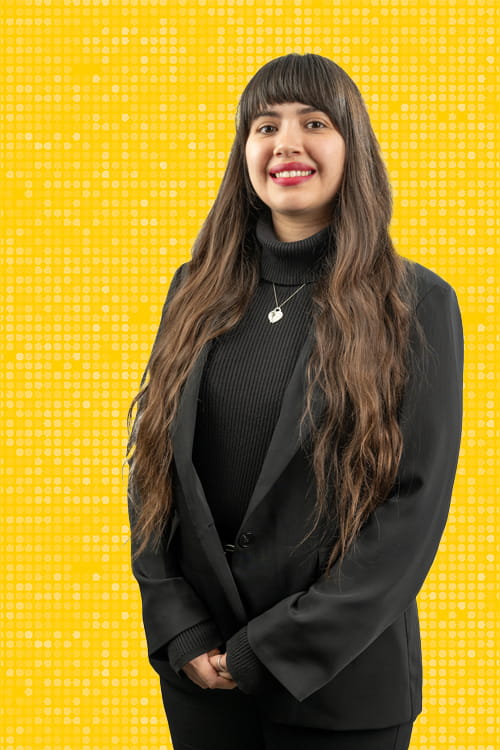
Tiffany Ybarra, PhD student, immunology
Deciphers immune cell signals
“Tiffany has a bright future. She truly exemplifies how the University of Iowa can change lives, and how students who start with disadvantages can succeed when given the right opportunities and support.” -Gail Bishop, professor
Hometown: Los Angeles, California
Faculty mentor/advisor: Gail Bishop, PhD, professor of microbiology and immunology
What is your degree program and anticipated graduation date? Interdisciplinary Graduate Program in Immunology, May 2024
Please describe your research: My graduate work focuses on identifying the molecular mechanisms that regulate B cell activation. Activated B cells provide lasting protection against infection by producing antibodies, but dysregulated B cell activity can drive the development of autoimmune disease and B cell cancers. Tumor necrosis factor receptor-associated factor 3 (TRAF3) is a protein that enforces appropriate signals in B cells, but I am working specifically to understand how it regulates early B cell activating signals to control inflammation during infection.
In simple terms, why does this research matter? Mutations that reduce or inactivate TRAF3 are common in multiple human B cell cancers. Reduced TRAF3 gives B cells a survival advantage and allows them to respond too vigorously to activation signals. Excessive activation signals translate to increased chronic inflammation, autoimmune disease, and B cell cancers. Understanding how TRAF3 regulates these important signals is a requirement for developing targeted interventions for B cell-mediated diseases that prevent dysregulation in the absence of TRAF3.
How soon after starting at the University of Iowa were you able to participate in research? I began conducting research immediately after starting graduate school at the University of Iowa.
How has being involved in research made you more successful at the University of Iowa? Being involved in research at the University of Iowa has allowed me to grow my skills as a scientist, such as critical thinking, communication and problem solving. The highly collaborative environment allows me to learn from my colleagues and expand my knowledge in different topics of immunology, which will help me in my future career goals.
What are your career goals and/or plans after graduation? After graduation, I plan to continue working in research and focus on the development of cancer therapeutics in the biotechnology industry.
Banner location: Downtown—
